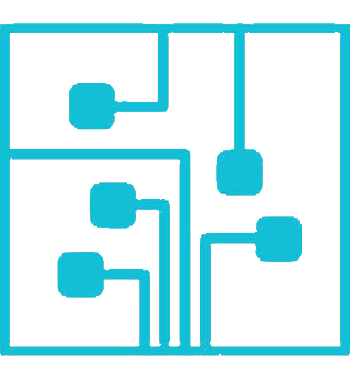Copper is easily formable, corrosion-resistant, and can be joined by welding, soldering, or brazening. Applications like copper busbars primarily choose this material for its conductivity, other applications benefit from the antimicrobial properties.
Opting for an alloy of copper such as bronze can compensate for the lower strength usually exhibited by a copper product, whereas a brass will offer much better machinability.
(+) Good weldability
(+) Great ductility
(-) Lowest machinability
(-) relatively not cost-effective (price drastically fluctuates)
(-) Low range tensile/yield strength
Copper is widely used by commercial contractors in electrical applications. This is largely due to its corrosion resistance and electrical conductivities.
Thermal conductivity has also made copper a key player in electronic manufacturing services. And its antimicrobial properties make it ideal for medical equipment.

Stack Trims
Stack Caps
Trim and Flashing

Ground Tabs
Filter Shields
Band Pass Shields

Brass Shunts
Bus Bars
DP Intrinsic Barrier-Clamps
C110/C11000 Copper was migrated to C11000 when the old method of naming grades needed to be expanded from 3 digits to 5. This grade is the most common copper we use. The conductivity and malleability are why it's favoured both in electrical applications like ground bus bars, and finished products including countertops, kitchen range -hoods, and more.